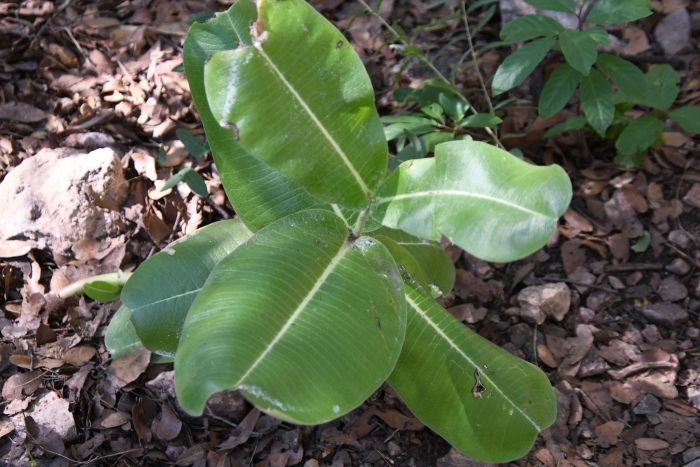Lemmon’s Milkweed
(Asclepias lemmonii)
Lemmon’s Milkweed (Asclepias lemmonii)
/
/

Mike Ostrowski
CC BY-SA 4.0
Image By:
Mike Ostrowski
Recorded By:
Copyright:
CC BY-SA 4.0
Copyright Notice:
Photo by: Mike Ostrowski | License Type: CC BY-SA 4.0 | License URL: http://creativecommons.org/licenses/by-sa/4.0/ | Rights Holder: Mike Ostrowski | Publisher: iNaturalist | Date Created: 2021-10-10T10:37:40-07:00 |






























Estimated Native Range
Summary
Asclepias lemmonii, commonly known as Lemmon’s Milkweed, is a deciduous perennial herb native to open woodlands and grasslands in the Southwestern United States and Mexico. It typically grows to a height of 1-5 feet (0.3-1.5 meters) and a width of 2-5 feet (0.6-1.5 meters). The plant features narrow leaves and clusters of intricate flowers that are a blend of white, pink, and green, which bloom in the summer and fall. These flowers are particularly showy and attract a variety of pollinators, including butterflies and bees.
Lemmon’s Milkweed is valued for its role in supporting butterfly populations, especially the monarch butterfly, which relies on milkweed species during its larval stage. It is used in butterfly gardens, native plant landscapes, and as part of pollinator-friendly projects. This milkweed prefers full sun to part shade and is drought-tolerant once established, making it suitable for xeriscaping. It thrives in well-drained soils and is relatively low-maintenance. While it is not typically afflicted by serious pest or disease problems, overwatering can lead to root rot. It is important to note that all parts of the plant are toxic if ingested, so care should be taken if planting in areas accessible to pets or children.CC BY-SA 4.0
Lemmon’s Milkweed is valued for its role in supporting butterfly populations, especially the monarch butterfly, which relies on milkweed species during its larval stage. It is used in butterfly gardens, native plant landscapes, and as part of pollinator-friendly projects. This milkweed prefers full sun to part shade and is drought-tolerant once established, making it suitable for xeriscaping. It thrives in well-drained soils and is relatively low-maintenance. While it is not typically afflicted by serious pest or disease problems, overwatering can lead to root rot. It is important to note that all parts of the plant are toxic if ingested, so care should be taken if planting in areas accessible to pets or children.CC BY-SA 4.0
Plant Description
- Plant Type: Herb
- Height: 1.3-5 feet
- Width: 2-5 feet
- Growth Rate: Moderate
- Flower Color: White, Pink
- Flowering Season: Summer, Fall
- Leaf Retention: Deciduous
Growth Requirements
- Sun: Full Sun, Part Shade
- Water: Low, Medium
- Drainage: Medium
Common Uses
Bee Garden, Bird Garden, Butterfly Garden, Deer Resistant, Drought Tolerant, Fragrant, Hummingbird Garden, Low Maintenance
Natural Habitat
Native to open woodlands and grasslands in the Southwestern United States and Mexico
Other Names
Common Names: Big-Leaf Milkweed, Bigleaf Milkweed
Scientific Names: , Asclepias lemmonii, Asclepias chapalensis,
GBIF Accepted Name: Asclepias lemmonii A.Gray